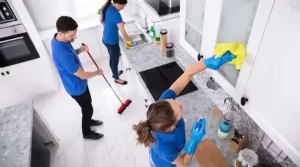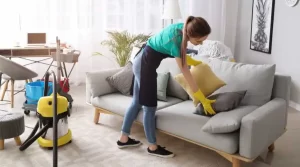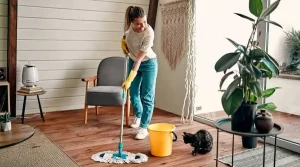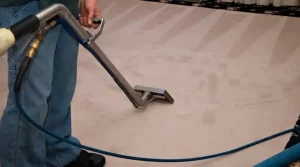The typical full-time American employee works 47 hours per week, according to a 2014 Gallup study. That equates to more than eight hours per day spent at work and in a cubicle. That 40+ hour workweek will seem longer if your workspace is messy and cluttered. To make your home-away-from-home a spot that is clean and clutter-free, go to the experts at JP Salt Lake City Commercial Cleaning for cubicle organization advice and ideas.
Cubicle Cleaning: Begin New
Start from scratch to complete the best cubicle organization job. As you clean, take everything off the desk and throw away anything unnecessary. Get rid of old candy and gum wrappers, scraps of paper, and sticky notes with messages that were answered weeks ago. Remember, a clean cubicle is a healthier cubicle, so throw away any leftover tissues and disinfect all hard surfaces.
Simple Cubicle Organization
Create work zones in your cubicle and designate a spot for the items you use every day to start organizing the area. Make the computer the focal point of the cubicle if you spend the majority of your day using it. Clean the keyboard and computer screen, and replace the coffee-stained mouse pad with a chic new one. To manage the extra commotion and mess, try these suggestions:
- Keep the things you use frequently close at hand.
- Have a pen and pencil holder so you never have to look for one while on a crucial phone call.
- Keep markers and highlighters in a different container.
- Invest in a split organizer tray to keep on the desktop or tucked away in a desk drawer.
- Use stacking paper trays and name them with terms like “today,” “to read,” “to file,” etc.
- Keeping personal items to a minimum
Many employers let workers add some personal touches to their desks or cubicles. However, keep the number of personal items in a cubicle to a minimum to maintain an organized and professional appearance. A few framed photos and a trinket give the space a personal touch while still retaining a professional vibe. Do not forget that a business still exists outside of your own office or cubicle. Your employer and coworkers will respect your professionalism if you treat them with respect.
Additional Desk Space
Walls that are coated in cloth are common in cubicle separators. T-pins slot easily into this material and transform into stylish hanging tools to make a DIY pegboard where items like scissors, a hole punch, tape, and more may be hung. T-pins may also be used to hang a corkboard for notes. On a fabric wall, Velcro tabs also function effectively. Add a shelf (or two) to get binders off the desk and neatly kept within arm’s reach, if office policy permits and you have the space. Another simple method for organizing a desk and keeping commonly used objects close at hand is to use vertical hanging folders.







